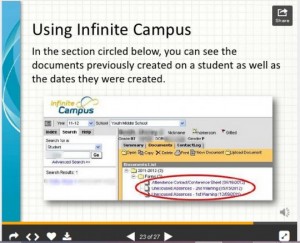Parental Rights in Public School: Quickly Disappearing.
Parents are increasingly concerned that public school administrators are superseding the legal authority parents have in their child’s life. Missouri parents were surprised to learn that their directives for their children not to use computers at school or no parental permission allowing student computer use were ignored by some school districts. Approval for children to use computers was granted by superintendents or other administrators over directives of parents via policy adopted by the school district. This policy was written by a private NGO, the Missouri School Board Association:
Jill Carter of Granby MO testified about a Technology Usage Agreement given to her son for her signature. A casual read of the document seemed to indicate that a parent had to give permission for a child to use technology (computer, email, internet etc.) in the classroom.
“No student will be given access to the district’s technology resources until the district receives User Agreements signed by the student and the student’s parent/guardian. Students who are 18 or who are otherwise able to enter into an enforceable contract may sign the User Agreement without additional signatures”
However, upon discovering that her son was in fact using the school’s computers even though she had refused to sign the TUA, she investigated the whole Usage agreement which also stated:
“Students who do not have a User Agreement on file with the district may be granted permission to use the district’s technology resources by the superintendent or designee“
So basically, parents have no ability to control their child’s access to technology or the internet in classroom. The school’s designee can always trump the parent’s wishes. This is bad enough. Then she read the language at the bottom of the policy:
“A user does not have a legal expectation of privacy in the user’s electronic communications or other activities involving the district’s technology resources including, but not limited to, voice mail, telecommunications, e‑mail and access to the intranet, Internet or network drives. By using the district’s network and technology resources, all users consent to having their electronic communications and all other use monitored by the district.”
A school board member from another district also testified that she discovered this same language in her own district’s technology usage policy. No surprise. The language has been copyrighted to the Missouri School Board Association and is widely used by districts all over the state. Check your district’s policy. It’s probably the same.
School administrators are becoming the authority in determining whether or not your child is marked as an ‘excused’ or ‘unexcused’ absence in data sets. Attendance policies have been tightened up by the districts due to waiver conditions Arne Duncan has granted for NCLB relief and to meet the ‘college and career ready’ goals via MSIP5. Remember this notice from Francis Howell and unexcused absences?
Watch for the subtle language change about unexcused absences moving into the realm of unlawful absences in Pennsylvania. This was supplied by a parent of a kindergartner:
So even if your student does not attend school (regardless of academic standing or parental decision), if the state determines it is unexcused, it is now unlawful. If your child racks up too many of these state decided unlawful/unexcused absences, get ready to appear in Family Court. From the parent:
This is less about the teaching and more about controlling policies.
While that particular language (unexcused vs unlawful) has not been provided to us by a Missouri parent, we do know that a parent was summoned to appear in Family Court to answer why her terminally ill child was missing too much school.
The Missouri Constitution directs the state provide a ‘free and gratuitous’ education. The provision of education delivery with punitive measures isn’t really ‘free and gratuitous’. Public education has become a maze of increasing mandates which actually take away the rights and liberties of parents:
 The policy giving the State authority over parental decisions for their children is a totalitarian educational structure, not a structure designed to provide a free and gratuitous form of education to teach students about their rights as citizens. When the rights of the parents are destroyed and are the decisions for children rests in the hands of the State, the system allowing the State unmitigated power must be destroyed. It cannot be repaired. Either parents can be trusted to make the best decisions for their child without the heavy handed bureaucratic and punitive rules of schools the parents are compelled to support or the system must be changed.
The policy giving the State authority over parental decisions for their children is a totalitarian educational structure, not a structure designed to provide a free and gratuitous form of education to teach students about their rights as citizens. When the rights of the parents are destroyed and are the decisions for children rests in the hands of the State, the system allowing the State unmitigated power must be destroyed. It cannot be repaired. Either parents can be trusted to make the best decisions for their child without the heavy handed bureaucratic and punitive rules of schools the parents are compelled to support or the system must be changed.




